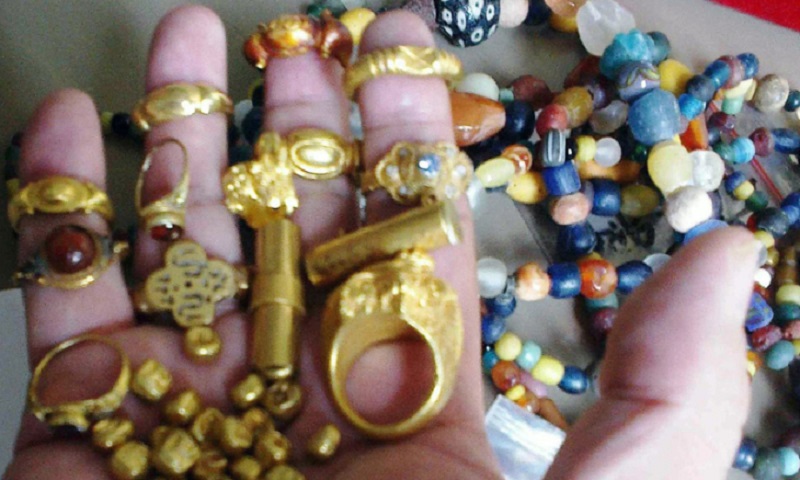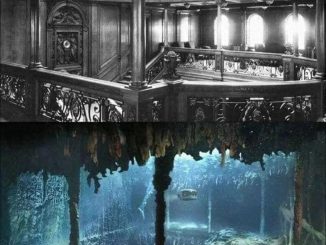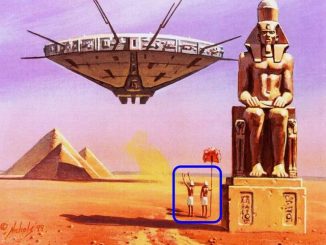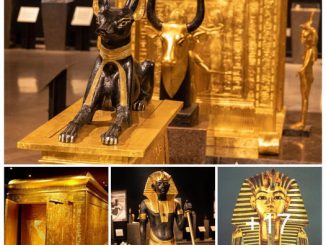Artifacts worth millions of pounds discovered and salvaged by fishermen along the Musi River could reveal the location of the ancient kingdom of Srivijaya.

Srivijaya’s gold rings, beads and gold coins were found near Palembang. Photo: Wreckwatch Magazine
Srivijaya is the legendary kingdom known as the Golden Isles, a civilization with enormous wealth. Explorers searched for it after it mysteriously disappeared from history around the 14th century. Now, Srivijaya’s location may have been discovered by local fishermen with night dives on the river. Musi River, near Palembang city, Sumatra island of Indonesia, Guardian reported on October 22.
Over the past five years, fishermen have salvaged many incredible treasures, from gems, gold rings, coins to a monk’s bronze bell. One of the most impressive discoveries is a life-sized Buddha statue encrusted with precious stones from the 18th century, estimated to be worth millions of pounds.
Dr. Sean Kingsley, a British marine archaeologist, said that these artifacts are evidence that Srivijaya was a “water world”, where people lived on rivers as recorded in ancient texts: “When civilization ended, temples, palaces and wooden houses sank with all their goods.” The research will be published in a new issue of the journal Wreckwatch, edited by Kingsley.
At its peak, Srivijaya controlled the arterial routes of the Maritime Silk Road – a massive bazaar for buying and selling local, Chinese and Arab goods. “In the 8th century, while the western Mediterranean region entered the dark ages, one of the world’s greatest kingdoms appeared on the map of Southeast Asia. For more than 300 years, the rulers of Srivijaya mastered the trade routes between the Middle East and China. Srivijaya became the international crossroads for the finest products of the day and the rulers amassed immense wealth,” Kingsley said.
Experts are not sure why Srivijaya collapsed. Kingsley speculates that the kingdom may have been destroyed by boiling volcanoes in Indonesia, similar to Pompeii, or swallowed by a fast-flowing river.
Without official excavations, clues to solving this mystery will disappear. Currently, the artifacts that fishermen collect are sold before archaeologists can study them thoroughly.
“Many antiques, including a life-sized Buddha statue decorated with many precious stones, have disappeared in the international antiquities market. The story of the formation and fall of Srivijaya is gradually lost without being told,” Kingsley warned.


